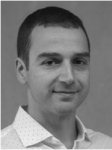Grid view
-

Prof. Alfredo Addeo
-

-

Prof. Charlotte Bunne
Tenure-track Assistant Professor, Artificial Intelligence in Molecular Medicine
-

-

Prof. Santiago Carmona
Combination of data science methods development with high-throughput single-cell and spatial omics technologies
Prof. Santiago Carmona
-

-

-

-

Prof. Valentina Garibotto
Head of the Division of Nuclear Medicine and Molecular imaging – HUG
-
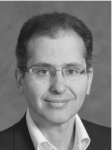
Prof. Francesco Luigi Gervasio
Biological and Pharmaceutical Modelling, School of Pharmaceutical Sciences
-

-

Prof. Stéphanie Hugues
Lymphatic vessels in the regulation of tumor immunity, Group Leader
-

Prof. Camilla Jandus
Tenure-track Assistant Professor - Targeting of cytokine secreting cell group (TCSL)
-

Prof. Vladimir Katanaev
Oncogenic signaling pathways: from fundamental research to drug discovery, Group leader
-

-

Dr. Intidhar Labidi-Galy
Pathogenesis and precision medicine in breast and ovarian cancer, Lab Leader
Dr. Intidhar Labidi-Galy
CMU - 6th floor, Room A06.2910.c
E-mail
-

-

-

Prof. Olivier Michielin
Full Professor, Department of Medicine, Faculty of Medicine UNIGE, Head, Division of Precision Oncology, HUG, Director, Department of Oncology, HUG,
-

Prof. Denis Migliorini
Head, Neuro Oncology Unit, HUG
Assistant Professor, Department of Oncology, UNIGE -

-

Prof. Mikaël Pittet
Understanding and manipulating the immune system to fight against cancer, group leader & CRTOH Coordinator
-

-

-
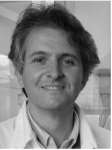
Dr. Federico Simonetta
Chef de Clinique Scientifique Oncology, Division of Hematology
Dr. Federico Simonetta
-
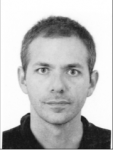
-
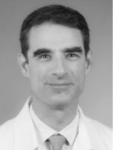
Prof. Christian Toso
Full Professor Department of Surgery, Faculty of Medicine UNIGE
Chief of Division -

Prof. Pelagia Tsoutsou
Head of Radiation Oncology Department - President of the Scientific Association of Swiss Radiation Oncology (SASRO)
-

Dr. Raphaëlle Luisier
Genomics and Health Informatics, Idiap Research Institute, Martigny
-

-

List view
-
Addeo Alfredo
Consultant Oncologist, Tumor immunology and immunotherapy
-
Borchard Gerrit
Biopharmaceuticals, Group Leader, CRTOH associate member
-
Bourquin Carole
Guest member
-
Bunne Charlotte
Tenure-track Assistant Professor, Artificial Intelligence in Molecular Medicine
-
Ansari Marc
Head of Oncology and Hematology Pediatric (HUG)
-
Carmona Santiago
Combination of data science methods development with high-throughput single-cell and spatial omics technologies
-
Cohen Marie
Gynaecological Tumours and Development Biology, Group leader
-
Cuendet Muriel
Pharmacognosy Group leader, CRTOH associate member
School of pharmaceutical sciences, Faculty of Science -
Eberhardt Christiane
Group leader - Vaccinology Center
-
Garibotto Valentina
Head of the Division of Nuclear Medicine and Molecular imaging – HUG
-
Gervasio Francesco Luigi
Biological and Pharmaceutical Modelling, School of Pharmaceutical Sciences
B09.1716.A -
Gotta Monica
Cell Division and Develoment, Group leader
-
Hugues Stéphanie
Lymphatic vessels in the regulation of tumor immunity, Group Leader
-
Jandus Camilla
Tenure-track Assistant Professor - Targeting of cytokine secreting cell group (TCSL)
F07.3167.A -
Katanaev Vladimir
Oncogenic signaling pathways: from fundamental research to drug discovery, Group leader
-
Kössler Thibaud
Assistant Physician, Head of Oncology Unit
-
Labidi-Galy Intidhar
Pathogenesis and precision medicine in breast and ovarian cancer, Lab Leader
CMU - 6th floor, Room A06.2910.c -
Mach Nicolas
Translational Research in Oncology, Group Leader
-
Meraldi Patrick
Cell Division and Cancer, Group Leader
-
Michielin Olivier
Full Professor, Department of Medicine, Faculty of Medicine UNIGE, Head, Division of Precision Oncology, HUG, Director, Department of Oncology, HUG,
-
Migliorini Denis
Head, Neuro Oncology Unit, HUG
Assistant Professor, Department of Oncology, UNIGE -
Nowak-Sliwinska Patrycja
Cancer Systems Pharmacology, Group leader
-
Pittet Mikaël
Understanding and manipulating the immune system to fight against cancer, group leader & CRTOH Coordinator
-
Scheiermann Christoph
Full professor
-
Serre-Beinier Véronique
Head of Division / Biologist
D02.1547.A -
Simonetta Federico
Chef de Clinique Scientifique Oncology, Division of Hematology
-
Tamburini Jérôme
Lymphomas and leukaemias, Group Leader
-
Toso Christian
Full Professor Department of Surgery, Faculty of Medicine UNIGE
Chief of Division -
Tsantoulis Petros
Precision oncology, Lab leader
-
Tsoutsou Pelagia
Head of Radiation Oncology Department - President of the Scientific Association of Swiss Radiation Oncology (SASRO)
-
Luisier Raphaëlle
Genomics and Health Informatics, Idiap Research Institute, Martigny
-
Vozenin Marie-Catherine
Oncology Department, HUG
-
Villard Jean
HUG Diagnostic, Affiliated member PATIM
-
Wenes Mathias
Assistant Professor


